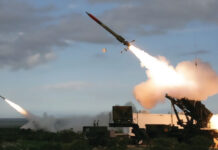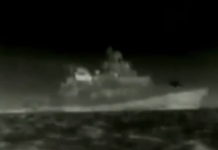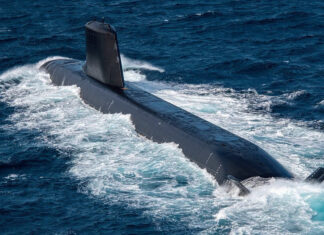The Rising Cost of Terror
The rising rate of sabotage and terror action is undoubtedly a major problem for the international organizations acting in Nigeria who are already forced to cope with oil theft on an industrial scale – one fifth of the daily oil production – 2,000,000 barrels – is being stolen, worth about 1 billion dollars per month (!), according to the government estimates.
Although Nigeria “leads” in scope and severity of the terror acts, other African countries are influenced by the terror acts of the terror organizations and Islamic groups in the Sahel.
It is known that most of the activity of the above groups is to establish local infrastructure in the neighboring countries and even more distant countries (see South Africa). This includes countries like Burkina Faso, Ivory Coast, Guinea Conakry and Senegal, where AQIM and MUJAO are acting quite intensively. Senegal, whose population is 90% Moslem, and in which the path to establishing dormant terror cells is quite short, is a prominent example.
Except for the concrete threat accompanying the daily activity of the energy companies at the arena, the oil and gas companies in the area are expected to become more and more exposed to harassment in the field of Cyber. The threat in this field is higher than in other business area, since most, if not all, of all the operational systems of the energy facilities are controlled remotely by computerized .(Please refer to the Cyber attack executed at the end of 2012 on the Saudi oil company Aramco).
This subject is worth a separate dedicated discussion.
In Summary, Western companies and in particular the companies active in the energy field, operating oil infrastructures (workers, production facilities, refineries, distribution points, maritime platforms, service ships etc.) from Mauritania to Chad, Algeria and Nigeria, are all exposed to growing terror threats, that for quite a long time are not limited only to the lawless Sahara area, but are in a process of accelerated expansion to the west and center of the African continent.

Kidnapping of the French family in 19th of February 2013 at the border of Nigeria with Cameroon demonstrates the severity of the threat also in countries where till now there was a relatively quiet situation. By the way, the family was released at the end of the week 20/4.
The decision of the giant oil producing companies to cancel or postpone business activity, such as BP announcement immediately after the Amenas terror act on immediate stop of their drilling operations in Libya’ as well as the decision by Shell to stop the flow of oil in the main oil transport pipeline in Nigeria, are a sign of the companies’ recognition of the size of threat on their workers and facilities, implying also that they don`t have an adequate security answer to the present threats.
It can be assumed with a high degree of certainty that already in the near future the companies working in the area, and in particular the oil and gas companies, will be asked to increase their insurance and secondary insurance payments for energy projects, to pay higher bonus payments for foreign workers employed in dangerous areas and in parallel to improve the safety and security means, standards and procedures in the various oil sites.
The increased terror and crime threats create a new economic and social reality, influencing the availability of resources abundant in Africa and needed by the whole world. As stated, this is a blinking red light indicating the threat on foreign factors wishing to operate in this area. Relieving these threats depends on the existence of effective intelligence and security arrangements that will be able to deter opponents, thwart attempts of impairing human life and causing damage, while providing an effective answer on emergency situations. There is a particular identity of interests in joining together these two points. On one hand this an existential threat for companies and business organizations operating on the continent, and on the other hand it is a business opportunity for security companies, specializing in risk management, providing consulting services and guidance in establishment of suitable security arrangements.

Author: Meir Gershuni
The author is a former Head of Division at the ISA, and at present Senior Vice President of the MAYDEX AG specializing in energy infrastructure security planning and a Senior Lecturer in the School of Security and Emergency Management at the Wingate Academic College.
Source: i-HLS ISRAEL Homeland Security
















